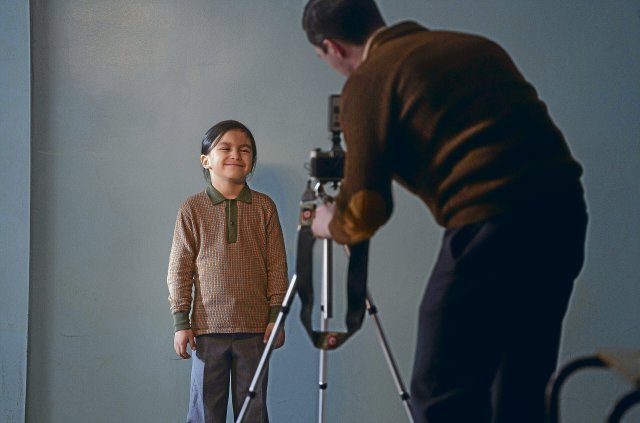A little-known episode in Canadian history becomes the must-see, educational series “Little Bird”
Photo: Steve Ackerman/Fremantle
When 23-year-old Esther Rosenblum (Darla Contois), who was taken away from her mother at the age of five, searches for her family in the Canadian province of Saskatchewan, it doesn’t look like she will find any of her relatives. The aspiring lawyer from Montreal in the series “Little Bird” is like thousands of other indigenous people in Canada who were torn from their families by state social workers during the so-called “Sixties Scoop” in order to put them up for adoption.
More than 20,000 Indigenous children were taken into care by Canada’s child protection agency from the late 1950s to the early 1980s and placed with other families to ensure their integration into Canadian society, according to the official justification for this racist policy. This has been increasingly addressed by historical research in Canada in recent years and is now the subject of a six-part series produced by the Aboriginal Peoples Television Network.
nd.DieWoche – our weekly newsletter

With our weekly newsletter nd.DieWoche look at the most important topics of the week and read them Highlights our Saturday edition on Friday. Get your free subscription here.
Esther, who was adopted by a Jewish family, at least finds out that her real name is Behzig Little Bird and that she has three siblings, one of them even her twin brother, whose existence she didn’t know existed.
The series “Little Bird” tells the depressing fictional story of the family of the same name, from which three of four children are taken away in 1968. The father is arrested by the police and beaten into a coma. The mother is deprived of custody by the social authorities through court proceedings. She can’t even object. The children are then placed with different families. Only Esther’s older brother Leo (Braeden Clarke) ends up growing up in the indigenous Little Pine reservation with their grandfather after their severely traumatized mother no longer feels up to the task of raising them.
Esther/Behzig ends up looking for her family on the reservation after she only gets bits and pieces of information from a social worker through persistence. At that time, the authorities were in fact not allowed to reveal any information about the whereabouts of family members. Esther/Behzig’s younger sister, Dora (Imajyn Cardinal), is adopted by a family, abused in foster care and ultimately ends up on the streets as a homeless sex worker. Her twin brother Niizh (Joshua Odjick) is adopted by a farming family in the USA, where he has to sleep in the stables and work as a harvest hand until he finally runs away, becomes an alcoholic and tours the country with an indigenous rock band.
“Little Bird” doesn’t stage a maudlin family reunion. When Esther/Behzig finally finds her siblings, a lot of conflicts and traumas arise. According to series creator Jennifer Podemski, who herself has a Jewish-indigenous family background, such feelings also played a major role on the film set, as many of the predominantly indigenous actors themselves have to do with the “Sixties Scoop” in their family stories. That’s why there was always a therapist on site to work with the actresses.
The series tells an impressive but also incredibly tense story about the fight for one’s own family and one’s own history. Flashbacks go back to the 60s and then back to the 80s, as Esther/Behzig drives through the reserve in the car and memories slowly come back. Finally, her adoptive mother Golda (Lisa Edelstein) intervenes, who initially has little understanding for her daughter’s request, but then supports her. This story is partly disturbing, but despite all its tragedy, it is also incredibly empowering and tells of a chapter of Canadian history that has received little attention so far.
Available in the Arte media library
#ndstays – Get active and order a promotional package
Regardless of whether it is pubs, cafés, festivals or other meeting places – we want to become more visible and reach everyone who values independent journalism with an attitude. We have put together a campaign package with stickers, flyers, posters and buttons that you can use to get active and support your newspaper.
To the promotional package
